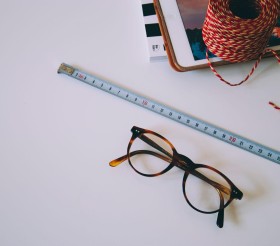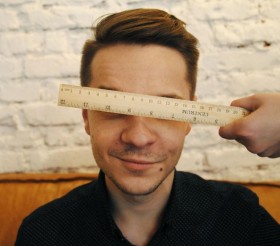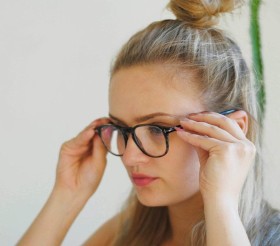You can't read a message on your mobile phone, you can't tell if it's 3 or 8 when you look at the clock, you can't see who the person is who is waving at you from the other side of the street,... Does this sound familiar? What are the signs that you need prescription glasses and what will they change in your life?
What causes nearsightedness and farsightedness?
Nearsightedness and farsightedness are among the first (and most common) vision problems people notice. What is the difference between them?
Short-sightedness (Myopia)
What is it? An eye disease in which light rays converge in front of the retina, causing a distant object to appear blurred. On the contrary, you can see close objects clearly.
Symptoms: The most common symptoms include headaches, fatigue or tired, strained eyes.
What causes it? No one yet knows the exact causes of myopia, but in general, it is said that myopia is a genetically inborn error, which can also be influenced by the so-called environmental causes, such as frequent reading in poor lighting or from a very short distance, watching TV or working on a computer.
Diagnosis and treatment: The disease can be diagnosed during regular visits to an ophthalmologist, but there is no need to worry. Myopia can be treated with correctly selected prescription glasses (the simplest, safest and probably the cheapest solution), contact lenses or surgery (during the surgery, the shape of the curvature of the cornea is changed).

Farsightedness (Presbyopia)
What is it? An eye disease in which light rays fall behind the retina. This causes nearby objects to be out of focus and distant objects to appear sharp.
Symptoms: Myopia symptoms include headaches, general fatigue or sore eyes.
What causes it? Farsightedness can stem from a number of causes, but the likely culprit is heredity.
Diagnosis and treatment: Myopia can be diagnosed by an ophthalmologist who will perform an eye examination. This disease can also be treated with glasses, contact lenses or surgery (the shape of the cornea changes).
Both farsightedness and nearsightedness have the same risk factor, which is heredity. So if someone in your family has suffered from one of these diseases, it is more than likely that you will too.
When is it necessary to wear prescription glasses?
If you already have your eye defect correctly identified, the worst is over, so to speak. But it often happens that people do not associate their symptoms with the need to wear glasses. So when is an urgent visit to the eye clinic necessary?
✔ If you have observed an acute condition that arose without an obvious stimulus.
✔ If you experience pain, burning, redness, impaired or double vision.
✔ If you have chronic pain and vision problems that are possibly getting worse.
✔ You still have a headache (impaired vision may not be the cause, but it is recommended to check the optic nerve, which may be the trigger).
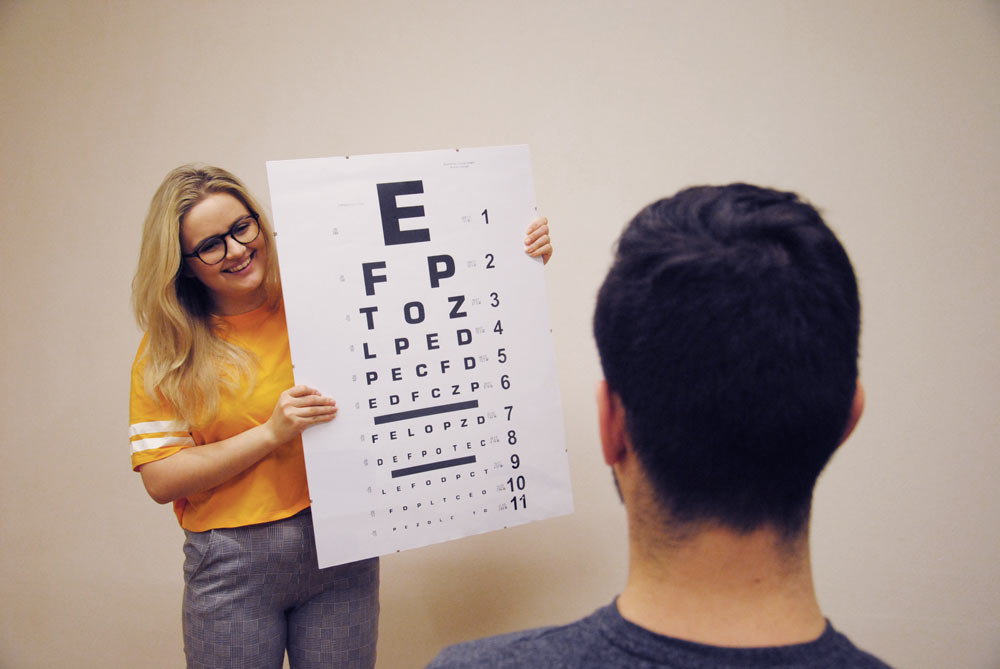
In these cases, the ophthalmologist will examine your vision and make an accurate diagnosis, which can often be the most common vision disorders (myopia, farsightedness, astigmatism, glaucoma,...). Attention - we recommend that you visit a specialized eye clinic, not an optician. There are no specialist doctors in outpatient clinics, who are the only ones who can correctly diagnose all eye diseases and suggest treatment.
What is life like with prescription glasses and what will change?
If your vision has deteriorated to the point where your doctor prescribes prescription glasses, you should be prepared for some changes ahead. Some (such as finally being able to see well) are pleasant, while others will take some getting used to.
✔ Glasses will become your mandatory equipment, therefore the check before leaving the house will change to "mobile phone, keys, wallet, glasses".
✔ Makeup becomes a bit more complicated. Long eyelashes are nice, but they don't make an ideal pair with glasses.
✔ Perpetual fogging of glasses? It can be annoying, but we will advise you on how to prevent glasses from fogging up!

✔ You should take good care of your glasses so that they last as long as possible. You can learn how to properly clean glasses here.
✔ Diopter + sport or sun? It can be a big problem for some, but we know that photochromic lenses, solar diopters or special sports diopter glasses will help you enjoy wearing glasses to the maximum.
✔ Don't forget to get your eyes checked regularly! Getting your first pair of glasses is not a final solution for the rest of your life. In order to prevent various eye damage, it is advisable to visit an ophthalmologist once a year. If you are over 60 years old, it is recommended to go for a preventive check-up at least once a year. Precisely because of the lower frequency of preventive examinations at the ophthalmologist, everyone should really be able to find some time to examine their eyes.
Advantages of prescription glasses?
Wearing glasses is not only about "obstacles". It is the oldest and still the most reliable aid for correcting vision problems. When you choose the right glasses, you can expect better vision, relief from headaches and an end to red, dry and tired eyes. In addition, the bonus of prescription glasses is a perfect style, which can be changed as often as you want thanks to the beautiful and affordable glasses from eyerim. Reach for glasses from world brands or choose the quality and unbeatable price of our own OiO and Kohe collections.
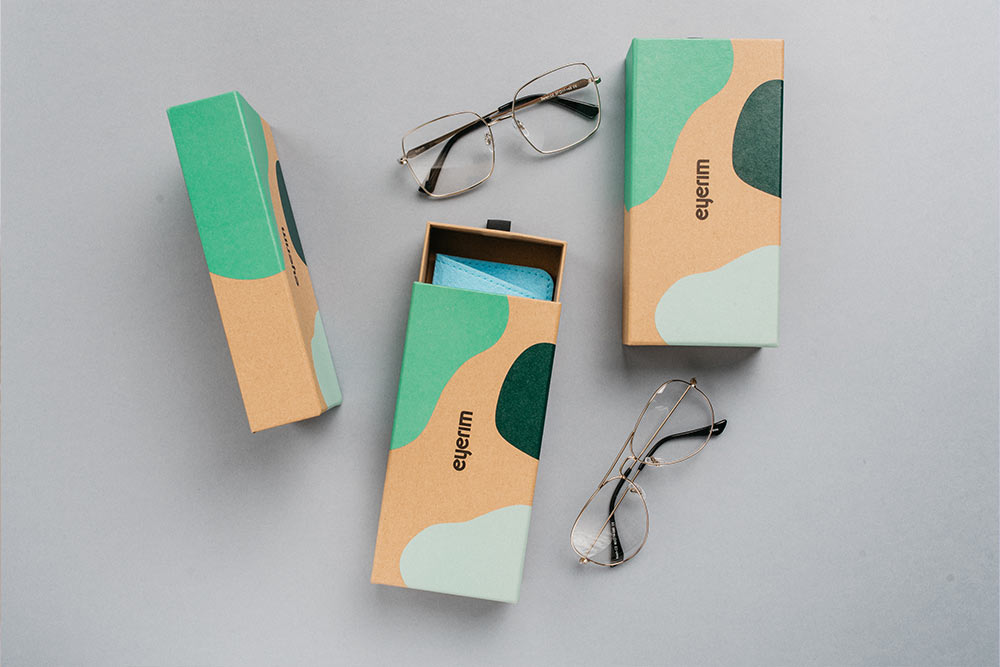
How often should you were glasses?
In general, wearing glasses is recommended without a time limit, but it depends on how much your vision is damaged and also whether you suffer from other problems that could be aggravated by prescription glasses. Your brain will quickly get used to the new state, and looking through the glasses near and far will become natural for you. However, it is best for you to consult your doctor in this order.

How to choose glasses?
If your doctor has already issued you a prescription, click on eyerim and discover our huge range of models for everyone! Women's, men's, children's? Elegant angular frames or retro cat-eye? We have everything! If you need advice first, we will tell you which prescription lenses to choose and also which glasses are most suitable for your face type.








